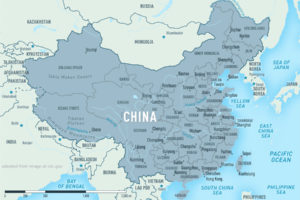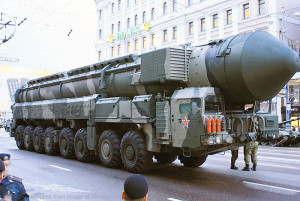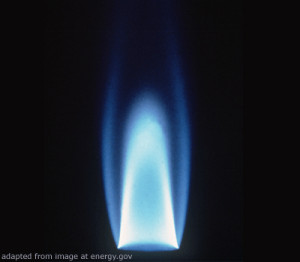RUSSIALINK: “Primakov Readings: U.S. can’t afford to contain both Russia and China – experts” – Interfax

MOSCOW. June 4 (Interfax) – The United States will not have enough resources to contain both Russia and China, Sergei Rogov, the academic director of the Russian Academy of Sciences’ Institute of the U.S. and Canadian Studies (ISKRAN), said on Thursday.
“If the double containment idea takes the upper hand, this could lead to extremely grave consequences for the U.S. itself. After all, they once pursued double containment with regard to Iraq and Iran, and look what this led to in the end. And containing both China and Russia, two powers of this kind – America will simply rupture itself. Especially considering their huge budget deficit, which has skyrocketed now as a result of the coronavirus crisis,” Rogov said during an online session of the Primakov Readings conducted jointly by Interfax and the Russian Academy of Sciences’ Institute of World Economy and International Relations (IMEMO).
Anatoly Torkunov, head of the Moscow State Institute of International Relations (MGIMO University), said Russia “should keep its hands untied as much as possible and, certainly, try not to be bound closely by political obligations.”
Strategic arms reduction talks
 China’s involvement in the Strategic Arms Reduction Treaty will put Russia in a more advantageous position, and Moscow could share its experience of such talks with Beijing, Scientific Director of the Russian Academy of Sciences’ Institute of World Economy and International Relations Sergei Rogov said during the online session of the Primakov Hearings.
China’s involvement in the Strategic Arms Reduction Treaty will put Russia in a more advantageous position, and Moscow could share its experience of such talks with Beijing, Scientific Director of the Russian Academy of Sciences’ Institute of World Economy and International Relations Sergei Rogov said during the online session of the Primakov Hearings.
The administration of U.S. President Donald Trump has conditioned the extension of the Strategic Arms Reduction Treaty, also known as New START, on China’s involvement, Rogov said.
“This is silly, considering that Russia and the United States won’t reduce their nuclear armaments to China’s level. And we absolutely don’t want China to have as many nuclear weapons as we do. Besides, China has been refusing to hold talks, which could be used as a pretext for terminating New START and creating chaos in the field of nuclear arms,” he said.
This will lead to “the unregulated rivalry which existed before the Cuban Missile Crisis and until the signing of the first agreements in the early 1970s: the ABM Treaty, and the Strategic Arms Reduction Treaty between the Soviet Union and the United States,” Rogov said.
“I think it’s important that we try to explain to our Chinese friends that arms control is an area where one can protect one’s interests, not capitulate, but demand limitations on the most dangerous systems a potential adversary has,” Rogov said.
China has no experience of such negotiations, Rogov said. “We should share such experience and try to begin negotiations with the Americans together with China. That would put us in a more advantageous position, although in the U.S.-Chinese standoff, we should clearly […] act as the character who sits on the fence, wags its tail, and watches the fight between the elephant and the whale from above,” he said.
LNG import from U.S. as card in game
 China will increase the purchase of natural gas from all sources to achieve its tasks to improve the environmental situation, but the purchase of liquefied natural gas (LNG) in the United States will depend on the degree of relations between Beijing and Washington, Alexander Lomanov, the head of the Center for Asia Pacific Studies of the Institute of World Economy and International Relations (IMEMO) of the Russian Academy of Sciences, said.
China will increase the purchase of natural gas from all sources to achieve its tasks to improve the environmental situation, but the purchase of liquefied natural gas (LNG) in the United States will depend on the degree of relations between Beijing and Washington, Alexander Lomanov, the head of the Center for Asia Pacific Studies of the Institute of World Economy and International Relations (IMEMO) of the Russian Academy of Sciences, said.
The Chinese market has “a good economic alternative” to U.S. LNG, “Russian gas; and Russian pipeline gas is quite competitive on the Chinese market,” Lomanov said.
In his speech at the online session of the Primakov Readings on the issue China-U.S.: Is There a Threat of Transformation of Arising Bipolarity to Cold War 2.0? organized by Interfax in collaboration with the IMEMO of the Russian Academy of Sciences. Lomanov said that the very choice to increase the share of gas in the fuel balance of the People’s Republic is a political choice.
“U.S. LNG, let’s call things by their names, is ‘political LNG,’ but it is only somewhat different, not because China is so used to inhale gas with ‘molecules of freedom,’ but because that is the inertia of “the stabilizing stone ideology.’ The agreement of the first stage deal, which was signed: China has to buy U.S. technological goods, U.S. agricultural goods, including U.S. resources, U.S. hydrocarbons. In principle, China needs them, that is, we cannot say that China is buying something it doesn’t need at all. The Chinese environmental recovery program in the country is also highly important politically,” he said.
“China has already tasted comfortable everyday life. People don’t want to breathe in black smog anymore, which falls on China’s largest cities every fall, and therefore a transition from coal generation to gas, gas heating is an irreversible tendency. A lot of gas is needed. In principle, an ideal model is diversification of sources, it’s Middle Eastern LNG, Russian pipeline gas, U.S. LNG,” the scientist said.
“In a situation of new bi-polarity, gas turns into a political bargaining chip (in the same as Russian pipeline gas on the European track). If the purchase of gas promotes good relations, China will buy a lot of it. If it helps establish wonderful relations, it will buy a lot of it, and if the relations get really bad, China will not buy anything,” the expert said.
Limitations on Russian gas exports to Europe
The monopoly on exports of pipeline gas to Europe creates an unfilled niche in the market, which is being filled by LNG suppliers, St. Petersburg State Mining University rector Vladimir Litvinenko said.
“Today the political problem of monopoly gas exports essentially creates a vacuum of 120 bcm of gas annually, which is currently being filled by LNG from American and other suppliers,” he said.
“This is a small problem – just remove the monopoly and we immediately deliver our gas to the consumer and build the kind of technological chain which really works,” Litvinenko said.
Litvinenko did not rule out that in the course of the Russia-U.S. confrontation, not just individual Gazprom entities, but the group as a whole may find itself under sanctions from Washington: “These are the sanctions that are now threatened, and I do not rule out that they will come to the point where the entirety of Gazprom (MOEX: GAZP) will be added to the list. And what is Gazprom – this is the oxygen of the economy – it accounts for everything in our country today – both negative and positive,” he said.
